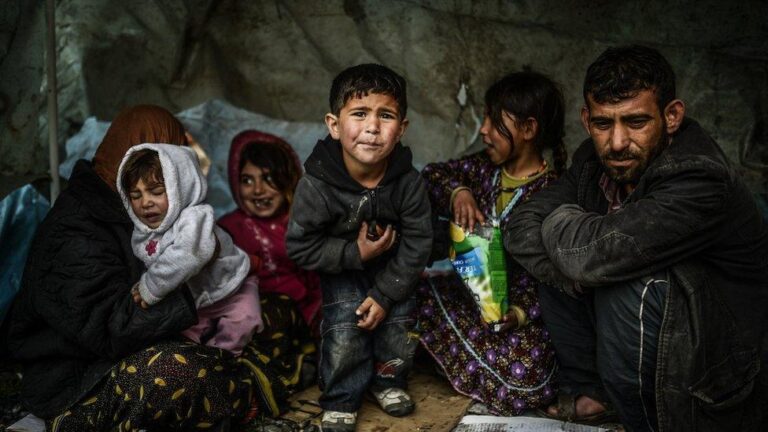The United Kingdom remains a key destination for thousands of refugees seeking safety and new beginnings amid global conflicts and crises. As debates surrounding immigration and asylum policies intensify, understanding the realities faced by refugees in the UK is more important than ever. This article, brought to you by HIAS, delves into the current landscape of refugee resettlement, the challenges newcomers encounter, and the support systems in place to help them rebuild their lives. From legal frameworks to community initiatives, here is what you need to know about refugees in the United Kingdom today.
Challenges Facing Refugees Navigating the UK Asylum System
Navigating the UK asylum system presents numerous obstacles for refugees, often exacerbated by complex legal procedures and prolonged waiting times. Many asylum seekers endure months or even years without a clear resolution, which can lead to severe mental health challenges. Language barriers and a lack of accessible information further complicate their ability to understand and engage with the process, leaving them vulnerable to misinformation and exploitation.
Additionally, limited access to legal representation and support networks creates significant disparities, particularly for vulnerable groups such as women, children, and survivors of trauma. Basic needs like housing, healthcare, and employment remain uncertain during the application process, increasing the risk of destitution. Below is a breakdown of some key challenges faced by refugees in the system:
- Lengthy processing times: Average wait exceeds 6 months in many cases.
- Legal complexity: Difficulties understanding rights and procedures.
- Cultural and language barriers: Limited interpreter availability.
- Inconsistent housing assistance: Overcrowding and temporary accommodation.
- Restricted work rights: Employment options often delayed or denied.
| Challenge | Impact on Refugees | Potential Solutions |
|---|---|---|
| Processing Delays | Increased uncertainty and stress | Streamline case management systems |
| Legal Support Accessibility | Higher risk of rejection or withdrawal | Expand free legal aid services |
| Accommodation Issues | Poor living conditions, risk of homelessness | Improve housing provisions and monitoring |
Access to Healthcare and Social Services for Refugee Communities
Refugees settling in the UK gain access to the National Health Service (NHS), which provides essential medical care free at the point of use. Despite this entitlement, many encounter barriers such as language differences, unfamiliarity with healthcare systems, and challenges registering with general practitioners (GPs). Support organizations often play a crucial role in bridging these gaps by offering interpretation services and healthcare navigation assistance. Additionally, certain vulnerable groups, like those with chronic illnesses or mental health needs, require tailored care that is sensitive to their unique experiences and traumas.
Beyond medical care, refugee communities can access a broad spectrum of social services designed to support integration and well-being. These include housing assistance, employment programs, and education support for both adults and children. Key resources available to refugees include:
- Community health clinics offering culturally sensitive care
- Legal aid services for navigating immigration and asylum processes
- Language and vocational training aimed at boosting employment opportunities
- Mental health counseling tailored to trauma-related needs
| Service | Free Access | Additional Support |
|---|---|---|
| General Practitioner Registration | Yes | Translation services often available |
| Mental Health Counseling | Varies | Specialized trauma-informed care options |
| Housing Assistance | No | Referral through social services |
| Employment Programs | Yes | Skills training and job placement services |
Policy Recommendations for Supporting Refugee Integration and Wellbeing
To foster meaningful integration and bolster the wellbeing of refugees, policies must prioritize access to comprehensive language education and culturally sensitive mental health services. Language proficiency opens doors to employment, education, and social engagement, while mental health support addresses the trauma many refugees endure. Additionally, collaborative efforts between local authorities, NGOs, and refugee communities ensure that initiatives are both effective and responsive to real needs.
Key policy actions should include:
- Providing tailored vocational training that aligns with the UK job market demands.
- Simplifying the process for refugees to have their qualifications recognized.
- Increasing community-based programs that encourage social integration and cultural exchange.
- Guaranteeing safe, affordable housing with support networks in place.
| Policy Area | Recommended Action | Expected Outcome |
|---|---|---|
| Education & Skills | Free ESL & certification support | Improved job prospects |
| Mental Health | Accessible counseling services | Enhanced emotional wellbeing |
| Housing | Affordable & secure accommodation | Stable living conditions |
| Community Engagement | Local mentorship programs | Stronger social bonds |
Concluding Remarks
As the United Kingdom continues to navigate the complexities of migration and asylum, understanding the experiences and challenges faced by refugees is more important than ever. Organizations like HIAS play a crucial role in providing support and advocacy for those seeking safety within UK borders. Staying informed about refugee issues not only fosters empathy but also encourages more inclusive policies and communities. For readers looking to learn more or get involved, sources like HIAS offer valuable insights and opportunities to make a difference.




